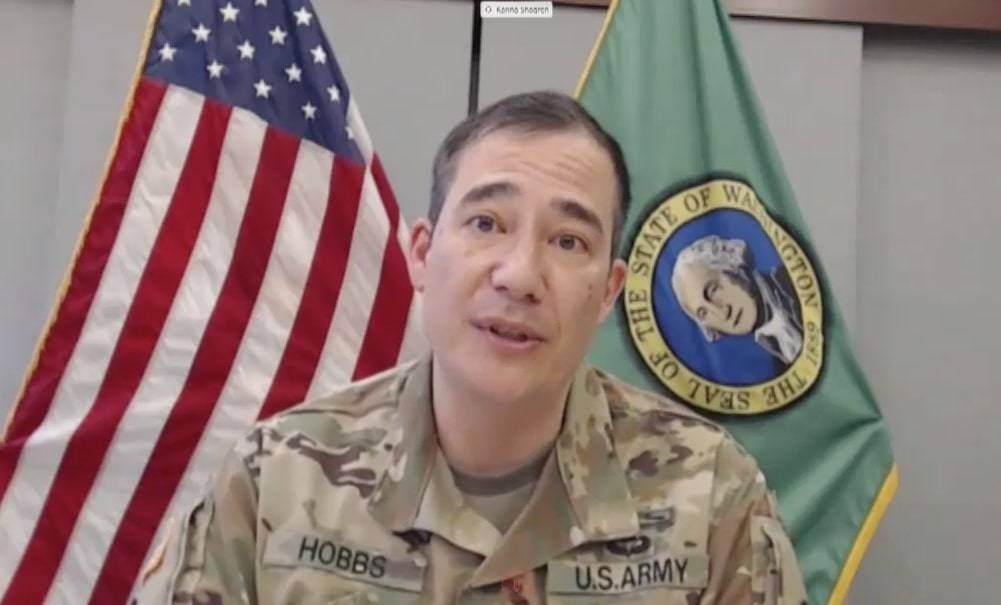OLYMPIA — Gov. Jay Inslee on Tuesday said the state is ready to deploy a “very highly trained” brigade of men and women to help local health districts contact individuals sickened with coronavirus and track down others who they may have infected.
Inslee said this force of 1,371 contact tracers will be critical to the state’s ability to “box in” and defeat the COVID virus which as of Tuesday had claimed 962 lives in Washington.
Until there’s a vaccine, contact tracing is key to the state’s ability to lift itself completely out of lockdown as it allows the state to get a better handle on who gets sick and how the virus is spread, he said.
Combined with increased testing statewide and extensive quarantine and isolation of those who become ill, they comprise what Inslee said is the next stage in the state’s effort to safely reboot the economy and revive public life while preventing a resurgence of the deadly virus.
“If successful, it will allow us to open up our economy,” Inslee said.
The governor issued a statewide stay-home order March 23 which led to closing of schools, shuttering of nonessential businesses and banning of large gatherings.
Though the order is still in effect, the state has begun a phased reopening, allowing for construction, car sales, golfing, car washes, drive-in religious services, curbside retail pick-up and access to outdoor recreation to begin again.
The next phase, which is expected no earlier than June 1, will bring a return of some restaurant dining and limited outdoor camping as well as opening of barber shops and beauty salons, and restarting of manufacturing and new construction.
Waivers have been granted to eight rural counties enabling them to enter the second phase now. Inslee on Monday released guidance for restaurants to offer dining. Among the rules is a requirement that customers log their names, phone numbers and email addresses.
If a customer or employee becomes ill, this will help in tracing down those who may have been exposed to that person, Inslee said. He stressed the information will remain private and cannot be sold or used by the restaurant in any fashion.
The 1,371 contact tracers, who will be available by the end of the week, should be more than adequate for existing needs, Inslee said. This includes 630 local and state health professionals, 390 employees of the state Department of Licensing and 351 members of the Washington National Guard.
“It is a unique mission for us,” said Steve Hobbs of Lake Stevens, a state senator and lieutenant colonel in the National Guard who joined Inslee on Tuesday.
If someone tests positive, the hope is that within 24 hours they will receive a phone call from their local health district or state Department of Health with advice on isolating. And within 48 hours those with whom they’ve been in contact can be traced and, similarly, provided information on quarantining themselves.
Inslee emphasized that contact tracers have been screened and signed confidentiality agreements. When they call, they will not ask about one’s immigration or marital status nor will they ask for a Social Security number. If you get a call, they won’t tell you how they got your name. In other words, they won’t say who tested positive.


